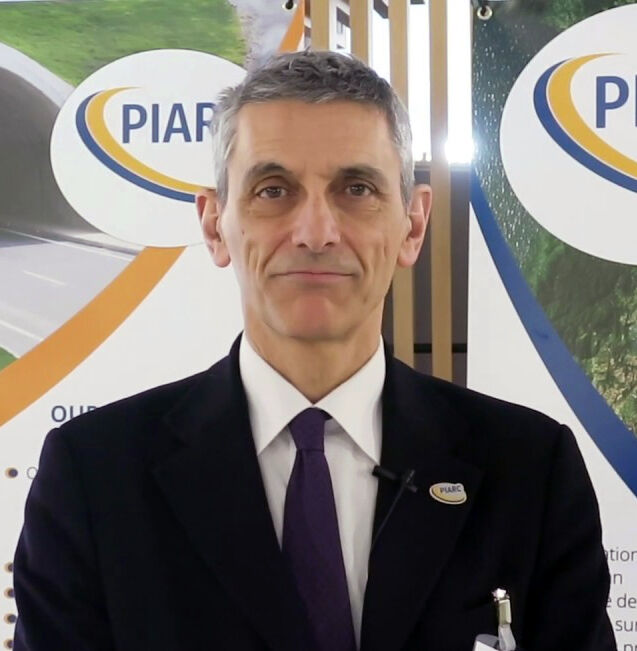Editorial - Roadletter February 2024

Fabio Pasquali
Strategic Coordinator on Decarbonisation
The achievement of relevant results in the process of decarbonisation of the road transport is at the top of all National Road Authorities and Agencies. PIARC has interpreted this widespread need by providing a special focus on Decarbonisation in its 2024-27 Strategic Plan: two new Technical Committees have been created, a new Strategic Coordinator has been appointed, the terms of reference of many TCs have been extended in order to allocate the right place to this topic in their work programme.
The challenge is to leverage the strategic role of the road in the economic and social system to update its usage: the climate transition forces us to re-assess our behaviors and impacts. We have to identify the proper path to allow the transport on roads to contribute to the process. In all the areas of the presence on the Earth, all are asked to limit their footprint by consuming less, with greater awareness and in a more efficient way.
Decarbonisation of the road sector encompasses almost all the themes of transportation. The need to reduce GHG emissions has brought about the long process of definition of specific commitments by the Countries of the world - the Paris Agreement in 2015, but also the previous and the further efforts to involve the majority of the Governments. It has also forced each Country to introduce a comprehensive plan for tackling climate transition. The transport sector, which is responsible for a significant part of GHG emissions, is part of a wider picture in which mobility options are regulared by environmental and resilience policies, at the national, regional, local and urban level. Different levels of behaviors, effects and measures need to be considered in order to plan an effective action that contrasts with the business-as-usual scheme.
PIARC’s goal is to provide a worldwide framework for exchanges on decarbonising the road transport sector. These exchanges will be based on different positions, experiences and policies carried out in the member countries, as well as on the ambition to overcome some of the traditional differences in approaches between richer and low and medium income countries. The need to react and act is urgent everywhere. Emissions - and their effects, in the short and the medium term - are the same in different parts of the world.
An integrated approach to decarbonising the road sector will include policy users' perspective, mobility priorities and goals considered in the wider picture of overall sustainability, technologies related to vehicles, roads, materials, processes, prospects for electric vehicles and roads, economic and financial implication of the plans and the policies.
The challenge proposed by is ambitious, but urgent and strategic. Solutions must be analysed, defined and implemented: decarbonisation is a common good and PIARC is a player which can contribute to improve and protect it for the benefit of the entire world.